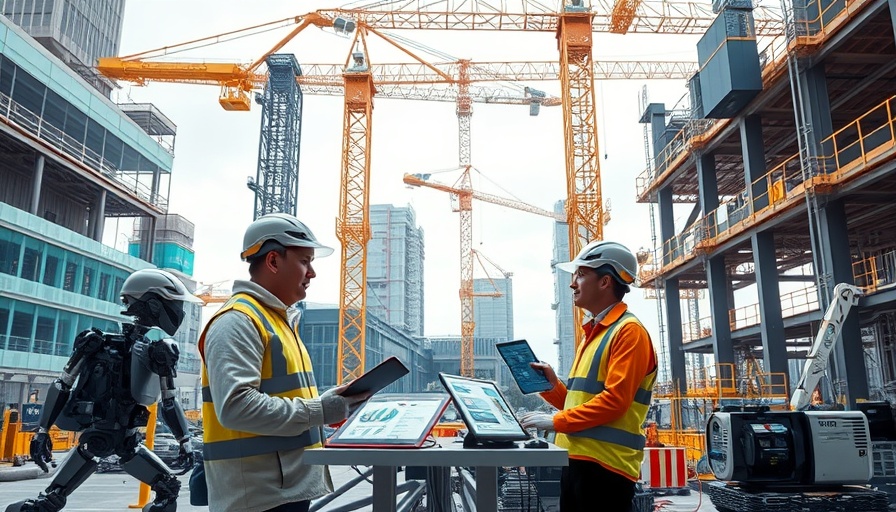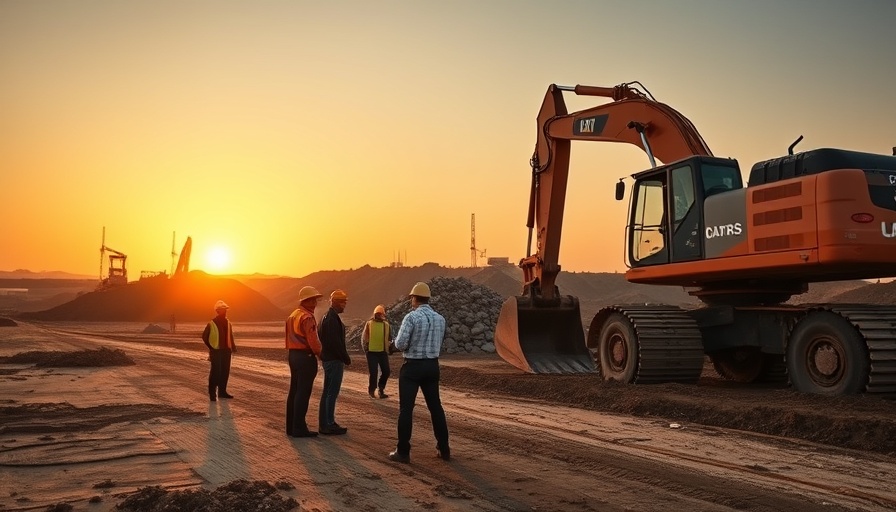
The Changing Landscape of Construction: AI Set to Revolutionize the Industry
The UK construction industry, pivotal to the nation's economy, is on the cusp of a transformation with the rise of artificial intelligence (AI) integration. While there’s an undeniable potential for growth driven by technology, it is concerning that some sectors within construction still appear hesitant to embrace AI strategies. A pressing question looms: is the construction industry in the UK falling behind?
Understanding the Need for AI in Construction
Stephen Dodds, founder of Aec Building Consultancy, emphasizes the necessity of adopting AI in construction, asserting that failure to do so could leave companies lagging behind their competitors. "Using technologies is now a must in construction — if you don’t, you’re already a step behind those who are," he states. As we approach 2025, it is predicted that AI will not just be advantageous but standard within building, surveys, and compliance.
The Unique Advantages of AI Tools
AI tools promise to streamline processes at every project stage. For instance, applications such as Overchat AI free up managers by automating routine administrative tasks, allowing them to focus on the bigger picture. Furthermore, innovative tools linked to Building Information Modelling (BIM) can utilize AI to optimize real-time project management—reducing costly errors and inefficiencies.
Dodds highlights the integration of AI and BIM can lead to predictive planning and detailed modelling, ultimately allowing construction firms to proactively identify potential design flaws or construction delays. This forward-thinking approach can significantly enhance building maintenance, reduce costs, and emphasize sustainability in construction practices.
Why AI Adoption is Imperative for Young Homeowners
For young homeowners in London interested in home improvement and sustainability, understanding AI’s role in construction could be incredibly beneficial. As AI continues to evolve, it will play a vital role in shaping more eco-friendly living environments. Imagine homes that not only respond automatically to your needs but are also built using advanced predictive technology that minimizes waste.
Integrating smart home technologies powered by AI not only promises immediate comforts but can also create longer-term sustainability within the community. Such innovations can lead to homes that conserve energy and resources—essential traits for any environmentally-conscious homeowner.
Future Predictions: Embracing AI in Your Projects
Looking ahead, embracing AI could lead to a new era for home design and construction. With tools allowing engineers and architects to solve complex design equations efficiently—such as load-bearing calculations or stress-strain analysis—projects will not only be faster but also safer.
As construction companies expedite their journey toward incorporating smart technologies, young homeowners must stay informed and engaged in how these advancements impact the spaces they occupy. Being proactive in insisting on smart technologies in home improvement projects can yield spaces tailored for enhanced livability and modern comfort.
Taking Action Today for a Smarter Future
In conclusion, the construction industry's gradual shift toward AI technologies represents much more than just a trend; it’s a vital necessity. The benefits of AI adoption are clear: reduced costs, faster completion times, and the creation of sustainable and intelligent living spaces. It’s essential for young homeowners to not only understand these developments but to advocate for them in their projects. Share your thoughts on this topic and stay updated with the latest trends in construction tech through blogs and local news. Let’s build a future that works smarter, not harder!
 Add Row
Add Row  Add
Add 






Write A Comment